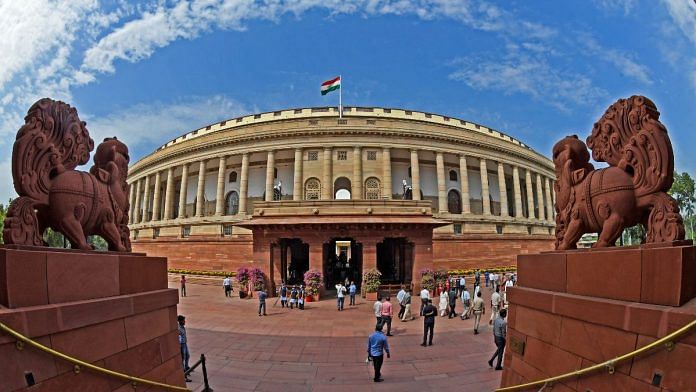New Delhi: Believe it or not, a survey conducted by the Pew Research Center has found that over two-thirds of Indians support autocratic or military rule and that support for these forms of government was found to be the highest in India among the 24 countries surveyed.
The survey report published on 28 February, 2024, took into account responses sought from 30,861 individuals across 24 countries between 20 February, 2023, and 22 May, 2023. The idea was to collate the opinions of the general public towards democracy and political representation.
Support for rule by a “strong leader” without any judicial or legislative interference was found to have increased in India by 12 percentage points between 2017 and 2023, the survey found.
In 2017, 55 percent of Indian respondents preferred a “strong leader” governing the country. In 2023, this number was found to be 67 percent. Among the countries surveyed, support for autocratic leadership was the strongest in India.
Over half of the Indonesian respondents also supported autocratic rule, along with about half of the Mexican and Kenyan respondents. In a similar vein, support for rule by the military was the highest in Indonesia after India.
As many as 72 percent of Indians polled by Pew supported rule by the military. Among them, 43 percent said they believed it is a very good form of governance, while 29 percent said they believed it is somewhat good.
Indonesians were the second in terms of support for military rule – an important finding to note given that till the end of the 20th century, Jakarta was ruled by the armed forces.
Of the five systems of government presented by Pew, military rule was the least popular among every other country. India, Indonesia and Mexico were the only three countries which supported this form of government.
The countries surveyed include Canada, the US, Hungary, Spain, Germany, Poland, Italy, Greece, Sweden, the UK, the Netherlands, France, India, Indonesia, South Korea, Japan, Australia, Israel, Nigeria, South Africa, Kenya, Mexico, Argentina and Brazil.
Fall in support for representative democracy
While support for autocratic forms of government was extremely positive in India, that for representative democracy was found to have declined since 2017.
In 2017, 44 percent of Indians said they believed that representative democracy was a very good form of government. In 2023, Pew found that only 36 percent of Indian respondents held this view.
Overall, after including those Indian respondents who believed representative democracy was a “somewhat good” form of government, a total of 79 percent of Indian respondents were found to have a positive view towards this form of government.
The fall in support for representative democracy was a trend across all countries surveyed by Pew. Pew has data for 22 of the 24 countries surveyed from 2017 and how their citizens viewed representative democracy.
In 11 of the 22 countries, for which data from 2017 exists, there has been a steep decline in support for representative democracy. For instance, as many as 54 percent of Swedish respondents polled in 2017 had shown very strong support for representative democracy. In 2023, this number had declined to 41 percent.
Meanwhile, technocratic government – rule by experts – saw a strong growth in support among Indians from 2017 to 2023. As many as 65 percent of respondents in India held a positive opinion of a technocratic system in 2017. Pew found that in 2023, the number of Indians polled supporting technocracy grew by 17 percentage points to 82 percent.
Direct democracy, women politicians also popular
While support for representative democracy was found to have declined in India, Pew found that 8 in 10 Indians want a direct democratic form of government. Direct democracy would allow citizens to vote directly on major issues.
At least 43 percent of Indians strongly believe in this form of government, while 37 percent believe that it is a “somewhat good” form of government. Support for direct democracy is the highest in India, South Korea, Kenya and Greece.
Two-thirds of Indians polled by Pew believed that having more women politicians would improve policymaking in the country. Of the countries surveyed, Indians showed the most support for more women Members of Parliament.
There was also strong support for politicians from financially disadvantaged backgrounds in India. As many as 62 percent of Indians said they believed policy-making would improve with politicians from financially disadvantaged backgrounds.
Despite seemingly large support for different forms of government, 72 percent polled were satisfied with the current system of democracy in the country. This was an increase of 2 percentage points from 2019.
(Edited by Tikli Basu)



